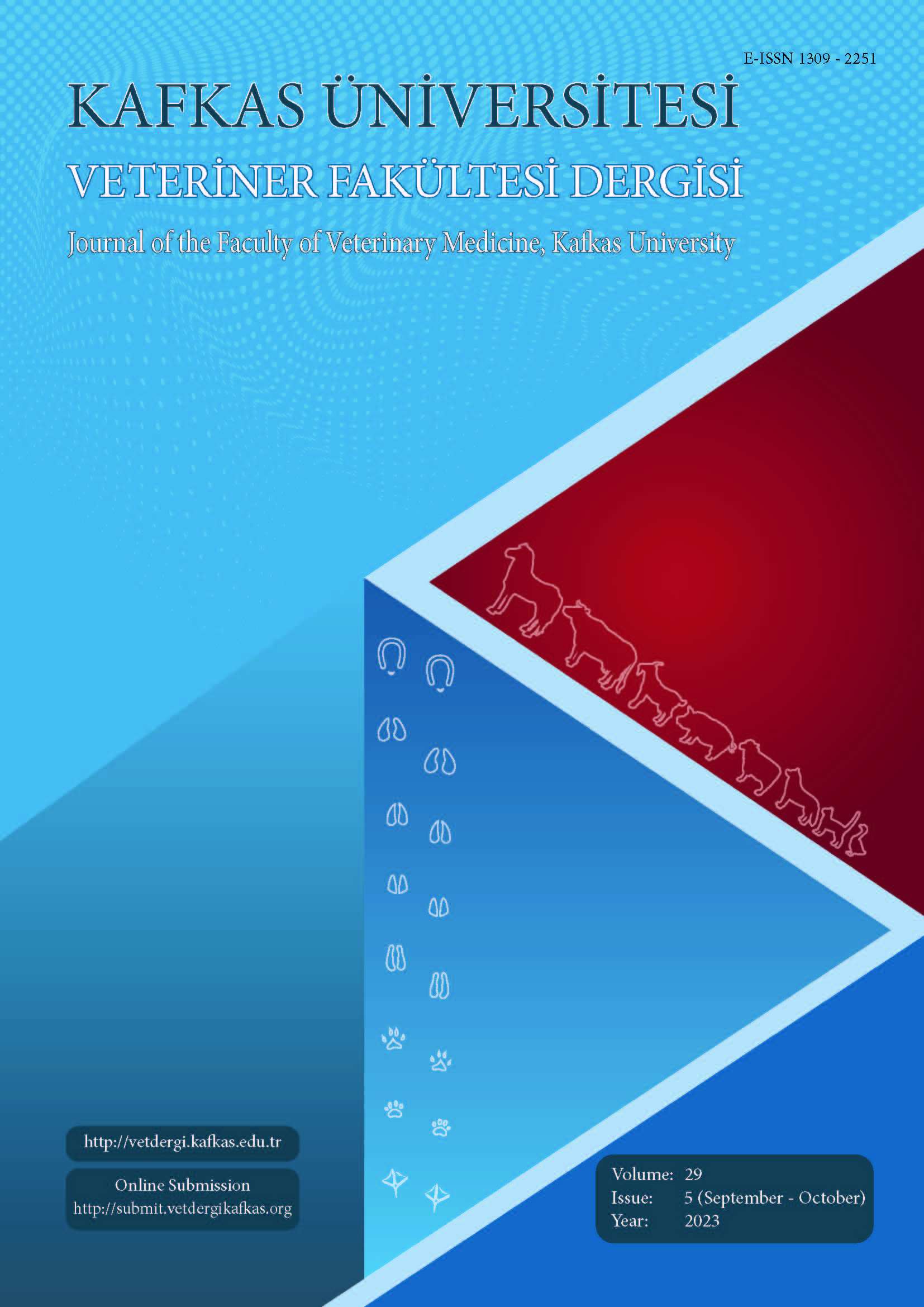Kafkas Üniversitesi Veteriner Fakültesi Dergisi
2023 , Vol 29 , Sayı 5
Effects of miRNA-155 on Inflammatory Response and Autophagy Upon Pulpitis Through the NLRP3 Signal
1Nanjing Stomatological Hospital, Affiliated Hospital of Medical School, Nanjing University, Nanjing 210018, Jiangsu Province, China2Guiyang Stomatological Hospital, Guiyang 550000, Guizhou Province, CHINA DOI : 10.9775/kvfd.2023.29397 Pulpitis refers to the inflammation of dental pulp tissues caused by infection with dental caries. We aimed to evaluate the effects of micro ribonucleic acid (miR)-155 on inflammatory response and autophagy upon pulpitis via the nucleotide-binding oligomerization domain-like receptor protein 3 (NLRP3) signal. Forty rats were randomly assigned to negative control (NC), pulpitis model (PM), anti-miR-155, and anti-miR-155+diethyldithiocarbamate (DDC) groups (n=10). Primary human dental pulp cells were divided into NC, lipopolysaccharide (LPS), anti-miR-155, and DDC groups. Compared with the PM group, the IL-1β, TNF-α, and MDA levels and pulp necrosis rate decreased, while the SOD activity was enhanced in the anti-miR-155 group (P<0.05). Compared to the NC group, the positive expressions of LC3B and Beclin1 and the protein expressions of NLRP3 and Caspase-1 significantly rose in the PM group (P<0.05). Compared with the PM group, the protein expressions of NLRP3 and Caspase-1 significantly decreased, and the positive expressions of LC3B and Beclin1 increased in the anti-miR-155 group (P<0.05). Compared with the anti-miR-155 group, the DDC group had significantly enhanced activity of dental pulp cells, up-regulated mRNA levels of IL-1β, TNF-α, NLRP3, and Caspase-1, and decreased mRNA levels of LC3B and Beclin1 (P<0.05). Suppressing miR-155 expression can relieve inflammatory response and promote autophagy. Anahtar Kelimeler : Autophagy, Inflammatory response, MicroRNAs, Pulpitis











